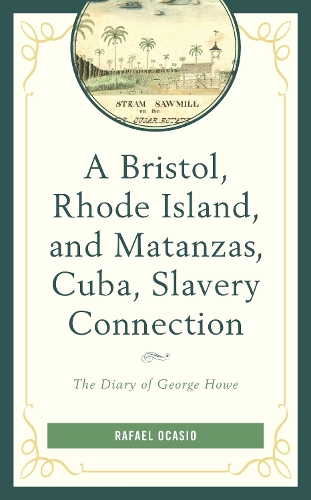
A Bristol, Rhode Island, and Matanzas, Cuba, Slavery Connection: The Diary of George Howe
(Hardback)
Publishing Details
A Bristol, Rhode Island, and Matanzas, Cuba, Slavery Connection: The Diary of George Howe
By (Author) Rafael Ocasio
Bloomsbury Publishing PLC
Lexington Books
22nd November 2019
United States
Classifications
Professional and Scholarly
Non Fiction
History of the Americas
Literature: history and criticism
Politics and government
306.36209745509034
Physical Properties
Hardback
292
Width 160mm, Height 233mm, Spine 22mm
572g
Description
In the early 19th century, Cuba emerged as the worlds largest producer of sugar and the United States its most important buyer. Barely documented today, there was a close commercial relationship between Cuba and the Rhode Island coastal town of Bristol. The citizens of Bristol were heavily involved in the slavery trade and owned sugarcane plantations in Cuba and also served as staff workers at these facilities. Available in print for the first time is a diary that sheds light on this connection. Mr. George Howe, Esquire (17911837), documented his tasks at a Bristolian-owned plantation called New Hope, which was owned by well-known Bristol merchant, slave trader, and US senator James DeWolf (17641837). Howe expressed mixed personal feelings about local slavery work practices. He felt lucky to be employed and was determined to do his job well, in spite of the harsh conditions operating at New Hope, but he also struggled with his personal feelings regarding slavery. Though an oppressive system, it was at the core of New Hopes financial success and, therefore, Howes well-being as an employee. This book examines Howes diary entries in the thematic context of the local Costumbrista literary production. Costumbrismo both documented local customs and critically analyzed social ills. In his letters to relatives and friends Howe depicted a more personal reaction to the underpinnings of slavery practices, a reaction reflecting early abolitionist sentiments.
Reviews
Diarist, naturalist, poet, painter, and prolific letter writer, George Howe was a man of many parts. He was also the manager of a Cuban slave plantation at the height of the island's sugar boom. In this work of historical recovery and literary analysis, Rafael Ocasio brings Howe and his long forgotten, utterly unclassifiable oeuvre back to life.
Ocasio brings to life not only the American encounter with colonial Cuba, and the business practices of the ingenios, but also the labor demanded of the enslaved themselves and, through a close reading of this literary text, how a New Englander navigated the glaring contradictions between the highly profitable exploitation of enslaved labor (and the illegal slave trade closely tied to it) and complicity with that system's inherent inhumanity and brutality.
Rafael Ocasio provides for us a thorough examination of the popular nineteenth century artistic travelogue opening our understanding of the critical relationship between Rhode Island and Cuba during the slaving era. Ocasio's book will be the go-to book on slaving for all interested in the aesthetics of the nineteenth century bringing alive an otherwise hidden history.
The book offers a deep dive into a little-known diary. It adds to the burgeoning literature on the dark and deep connection of slavery that bound Bristol, Rhode Island and Cuba together.
Author Bio
Rafael Ocasio is Charles A. Dana Professor of Spanish at Agnes Scott College.
